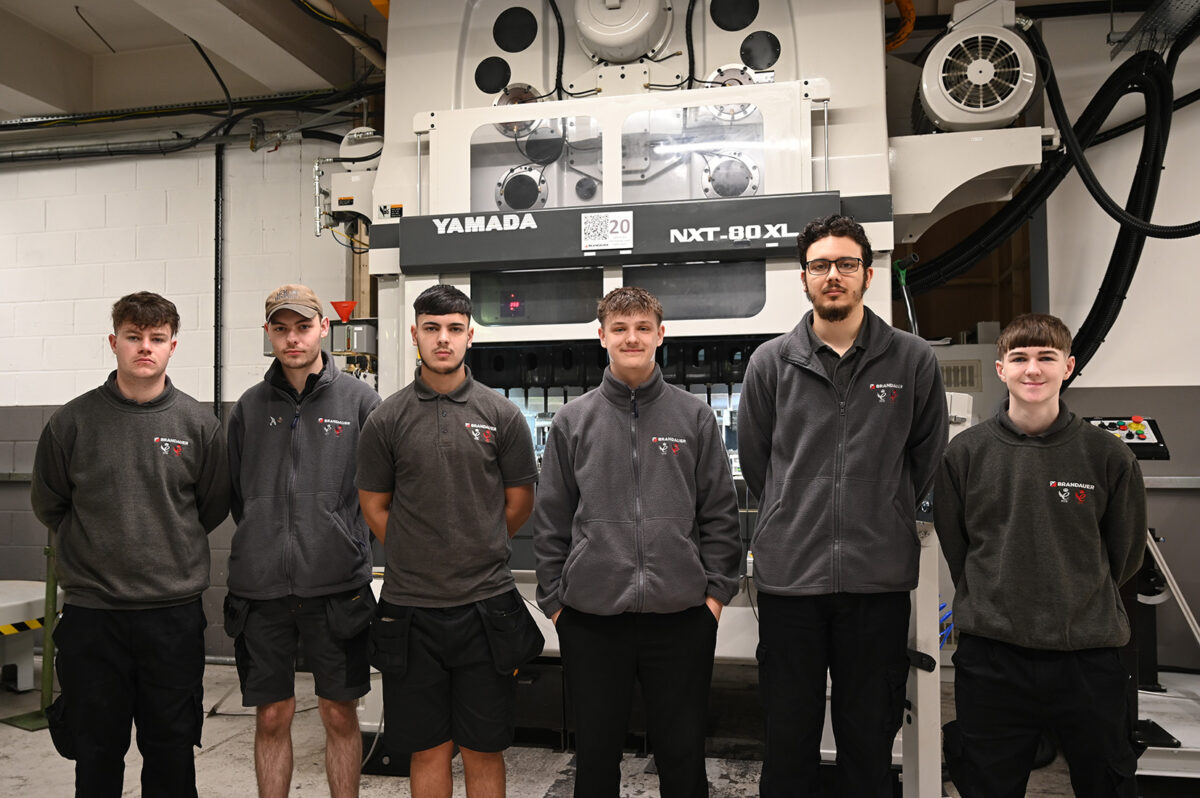Government response to the T Level Consultation

Speaking about the Government’s response to the T Level consultation released today (27 May),
The consultation response confirms the high-quality nature of these new qualifications – with:
- course content created by expert panels of employers to make sure young people have the knowledge and skills needed;
- 3 month compulsory industry placements that will give young people the experience and wider skills they need to be ready for the world of work;
- standards assured by Ofqual and the Institute for Apprenticeships (IfA) so that T Levels remain high-quality and are valued by employers
 Education Secretary Damian Hinds said:
Education Secretary Damian Hinds said:
“T Levels represent a once in a lifetime opportunity to reform technical education in this country so we can rival the world’s best performing systems.
“For too long young people have not had a genuine choice about their future aged 16. Whilst A levels provide a world class academic qualification, many technical education courses are undervalued by employers and don’t always provide students with the skills they need to secure a good job – that has to change.
“Naming the first 52 colleges and providers where young people will be able to study the first T Levels is an important step forward, and we will continue the work with business and the education sector so everyone can benefit from these vital reforms.
“Technology and the world economy are fast-changing, and we need to make sure our young people have the skills they need to get the jobs of tomorrow. This is at the heart of our modern Industrial Strategy.”
 David Hughes, Chief Executive of the Association of Colleges, said:
David Hughes, Chief Executive of the Association of Colleges, said:
“Colleges will welcome the greater clarity that the Government’s response to the T Level consultation brings. We are also pleased to see that English and maths will be funded in addition to the T Level and it is good that DfE is exploring ways that students can combine T levels with further academic study such as A level and core maths. Colleges will receive targeted support for work placements which will hopefully address concerns about the challenge of providing meaningful work placements for large numbers of students by targeting support in this area. We also welcome the focus on meeting the needs of all students, including students with special educational needs. It is important that these students can access T Levels and are not disadvantaged because they fail to gain a full Level 2 in English and or maths.
“There are still, of course, many questions such as how the grading system will work in practice and the impact on other qualifications. Further details are needed of how the transition offer for students might work. However, it is positive that the overall funding for T Levels seems to acknowledge that young people need a well-designed and robust programme of study post-16 and that this will positively impact on their future life chances, so we are hopeful that this principle will eventually have a positive impact on the breadth of study programme available for all 16-18 students.”
Ofqual’s response to the government’s consultation on the implementation of T level programmes
Ofqual welcomes the government’s vision to transform the technical education system with the implementation of T-level programmes in their official response released today (14 Feb).
The T-level programme is an important development which has the potential to raise the status of technical education. They are committed to working with government and the Institute for Apprenticeships to develop and deliver technical qualifications that meet the needs of learners and employers.
Edge’s response to the T-Level consultation
Edge agrees that there is a need to simplify the vast range of options for young people, and applauds the ambition to raise the quality and perception of technical and professional education.
However, there are three key areas which need to be addressed if T-Levels are going to deliver. While the development of a system of technical education post-16 is welcome, it makes no sense in isolation from schools policy up to that age.
The focus on school performance measures and the wholly academic focus of the EBacc are contrary to the ethos of valuing and delivering quality technical and creative education. The result of this blinkered approach to education policy has been a protracted decline in the study of creative and technical subjects. For example, the number of GCSEentries in Design and Technology has fallen by more than two fifths since 210.
There is also the danger that T-Levels will reinforce the divide between academic and technical education forcing young people at 16 to follow a singular pathway, even despite the Government’s own Careers Strategy advocating ‘a combination of the two routes will be most suitable for some people’.
Finally, T-Levels will stand or fall on the ability for young people to progress onto a quality higher technical qualification. The number of learners achieving level 4 and 5 awards under the college budget in 2014/15, fell by 36 per cent on the previous year. The Government’s plans to review level 4 and 5 provision much be integral to the work on T-Levels.
This is our response and you are welcome to use it in creating your own. Technical education is not only a vital part of a balanced education, but critical to our economy and we need your voice to shape these reforms.
NCFE’s response to the T-Level consultation
Overall, we’ve questioned the forthcoming role of the Institute for Apprenticeships and technical education in approving and developing assessments – if these are to be of high quality and consistent across sectors, we would prefer sector experts, such as Awarding Bodies, to develop them.
We’re also keen to have Ofqual as regulator for this new provision. As well as being the existing ”experts in the room’’ in terms of curriculum and assessment, it would make sense for comparability of T-level programmes to other options available to 16 year olds. The rationale of having a different regulator for T-level just doesn’t seem to hold water.
What remains the paramount concern relating successful implementation of the T-levels is the work placement. We believe that the following will need to be addressed to enable successful integration of the work placement into the programme:
- Accessibility
Resources need to be made available to help learners access work placement opportunities, as these will be primarily accessed by public transport.
- Geographical disparity
The Institute will need to accept that not all institutions will be able to offer all pathways as there won’t be the range of employers in all locations. A way to overcome this would be to allow ‘on campus’ facilities, where existing, to be accepted as work placements.
- 24 hour access
The Action Plan outlines that work placements need to take place within the academic timetable, where possible – again, this may not be possible in some sectors.
In addition, some learners at 16 may not be able to access all aspects of a work placement (for example, care situations involving bathing clients etc.)
This raises further questions around the DBS considerations for wider industries, specifically who will pay for this (for example, if placements are in a school, each learner will need checking – does the employer/school pay or the T-Level provider?)
- Consistency
We would like clarification of how work placements and projects will be managed and held to similar standards across all of the routes?
We also request that small and micro employers are given the support they will desperately need to deliver these placements in the numbers needed.
In our response we have also pressed for a period of stability in the technical education space to allow the T-levels to be adopted across the sector, as well as the other relatively recent innovations such as Applied Generals and the revised GCSE and A-Level qualifications.
City & Guilds’ response to the T-Level consultation
City & Guilds agrees that technical education has the power to transform skill levels in this country and help respond to the challenges we face with poor productivity, rising skills gaps and skills shortages. For it to deliver on this promise, technical education needs to be improved and we support the Government’s intentions to reform technical education and put it on a par with academic education as a high quality route through to employment.
As a provider of skills education for 140 years, we have seen enormous changes to skills education. Arguably there have been too many changes over the past 30 years with successive Governments tinkering with the system and unwittingly breaking the natural links that exist between high quality technical education and employment. Our report, Sense & Instability: three decades of skills and employment policy found that in 2016 there had been 65 Secretaries of State responsible for skills and employment policy in a thirty year period (compared with 19 for schools policy and 19 for higher education). This has now increased with the change to Damian Hinds.
There are several relevant, recent examples of well-intentioned false steps in the vocational space from which lessons must be learnt. For example, the 14-19 Diploma (to which structurally, the proposed T level programmes bears resemblance) which foundered after only a few years, leaving learners with a qualification which employers do not understand or value and which wasted large sums of public money on development costs. We want to help make sure that T levels policy avoids any such pitfalls.
If this much needed reform is to be successful then it’s crucial that time is spent in getting the implementation right and giving another big change in the system time to bed in and be recognised by all.
In responding to the consultation, we sought the views of provider and employers as well as those in the wider education sector. We felt it was particularly important to represent the views of employers who will be the ultimate beneficiaries of these new qualifications, in the form of a better skilled workforce. Contributors from the City & Guilds Industry Skills Board (ISB) and Quality Standards Committee (QSC) have been listed in the appendix.
Institute of the Motor Industry (IMI) response to the T-Level consultation
The IMI’s implementation consultation response raises the following concerns around the design of T-Levels:
- T-Levels need to add real value to the existing range of apprenticeships, traineeships, technical awards and vocational qualifications.
- Vital that Level 2 qualifications continue to have a role alongside T-Levels.
- ‘Threshold competence’ not enough, need for simplified grading system.
- Serious flaws within mandatory ‘work placement’ component.
- English and Maths needs to be suitable for learner progression.
NHS Employers’ response to the T-Level consultation
The response emphasises these key points:
- there is a lack of knowledge and understanding about T level programmes
- employers are concerned about their capacity to accommodate work placements
- a funding system is needed that allows for flexibility to support infrastructure
- there is apprehension about how T level programmes will complement apprenticeship routes.











Responses